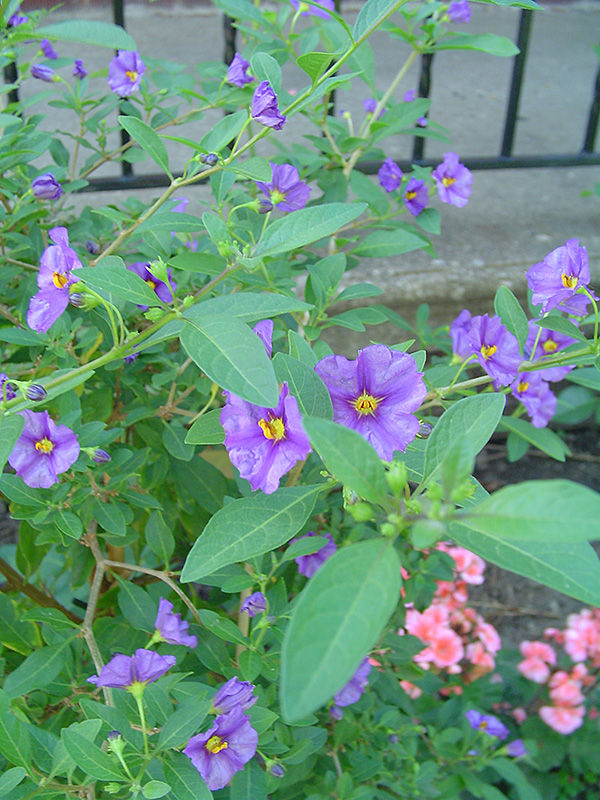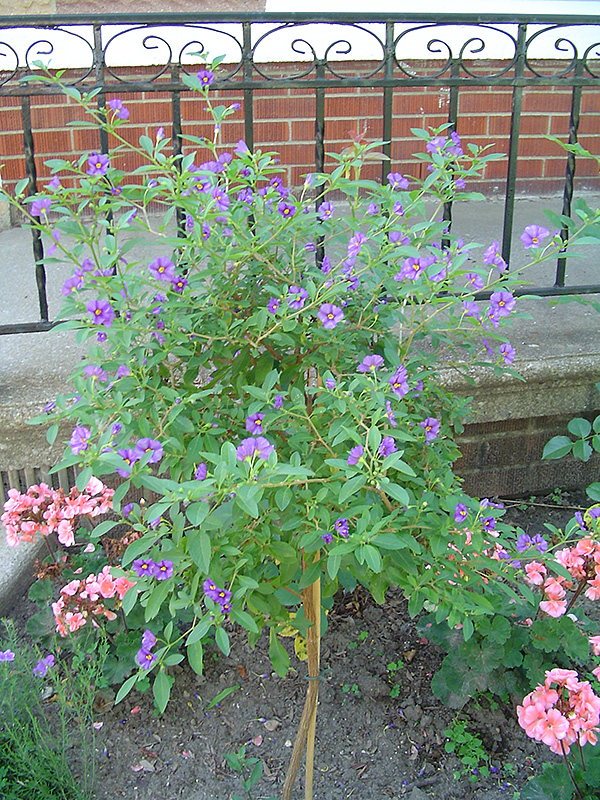6 feet
4 feet

(annual)
Paraguay Nightshade, Lycianthes rantonnetii
Blue Potato Bush (tree form) features showy lightly-scented violet round flowers with blue overtones and yellow eyes along the branches from late spring to mid fall. Its oval leaves remain green in color throughout the year.
Blue Potato Bush (tree form) is an annual with a strong central leader and an upright spreading habit of growth. Its medium texture blends into the garden, but can always be balanced by a couple of finer or coarser plants for an effective composition.
This is a high maintenance plant that will require regular care and upkeep, and is best pruned in late winter once the threat of extreme cold has passed. It has no significant negative characteristics.
Blue Potato Bush (tree form) is recommended for the following landscape applications;
- Accent
- General Garden Use
Blue Potato Bush (tree form) will grow to be about 6 feet tall at maturity, with a spread of 4 feet. It tends to be leggy, with a typical clearance of 2 feet from the ground, and should be underplanted with lower-growing perennials. Although it's not a true annual, this fast-growing plant can be expected to behave as an annual in our climate if left outdoors over the winter, usually needing replacement the following year. As such, gardeners should take into consideration that it will perform differently than it would in its native habitat.
This plant should only be grown in full sunlight. It prefers to grow in average to moist conditions, and shouldn't be allowed to dry out. It is not particular as to soil type or pH. It is somewhat tolerant of urban pollution. Consider applying a thick mulch around the root zone in winter to protect it in exposed locations or colder microclimates. This is a selected variety of a species not originally from North America, and parts of it are known to be toxic to humans and animals, so care should be exercised in planting it around children and pets.

